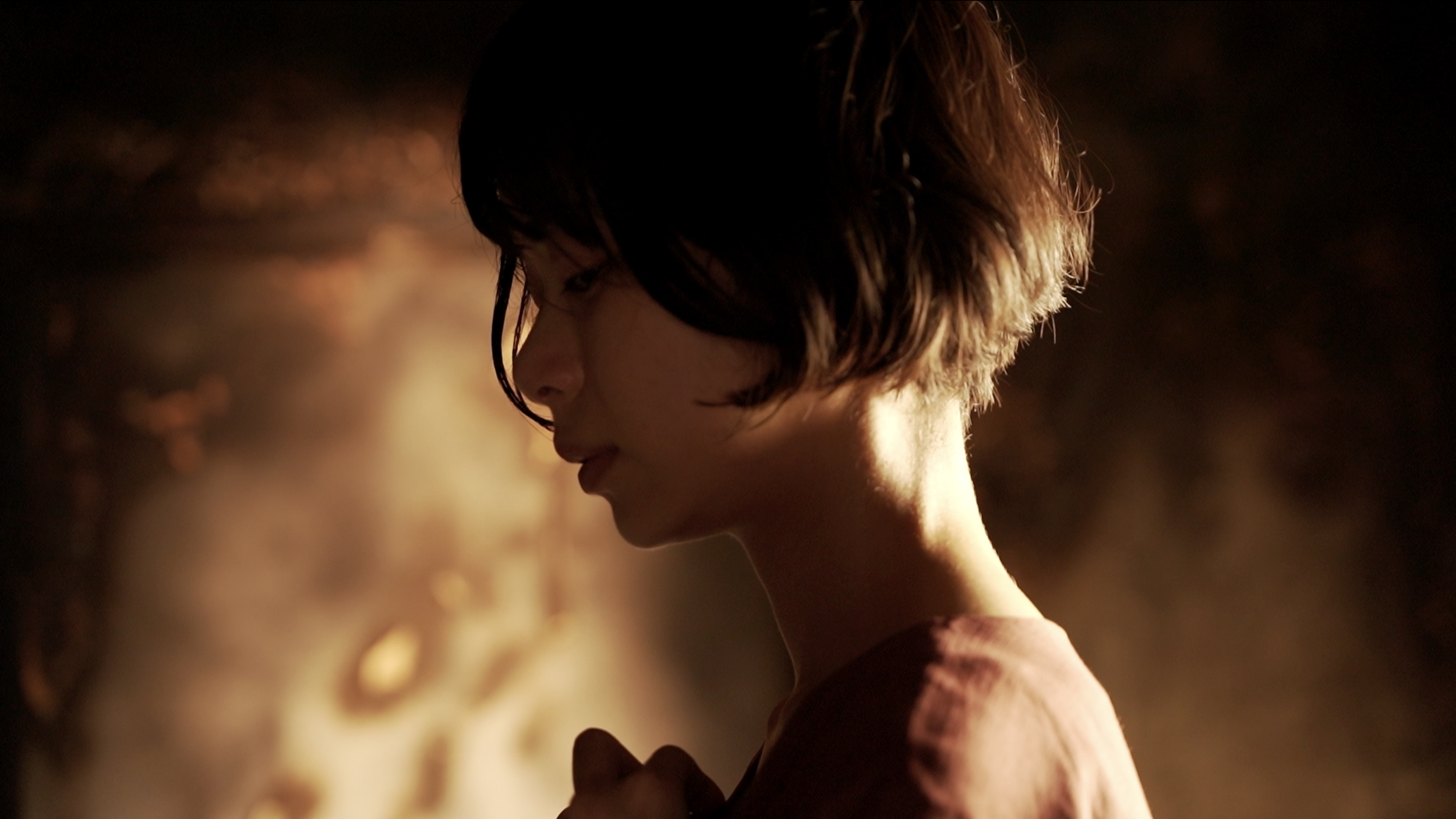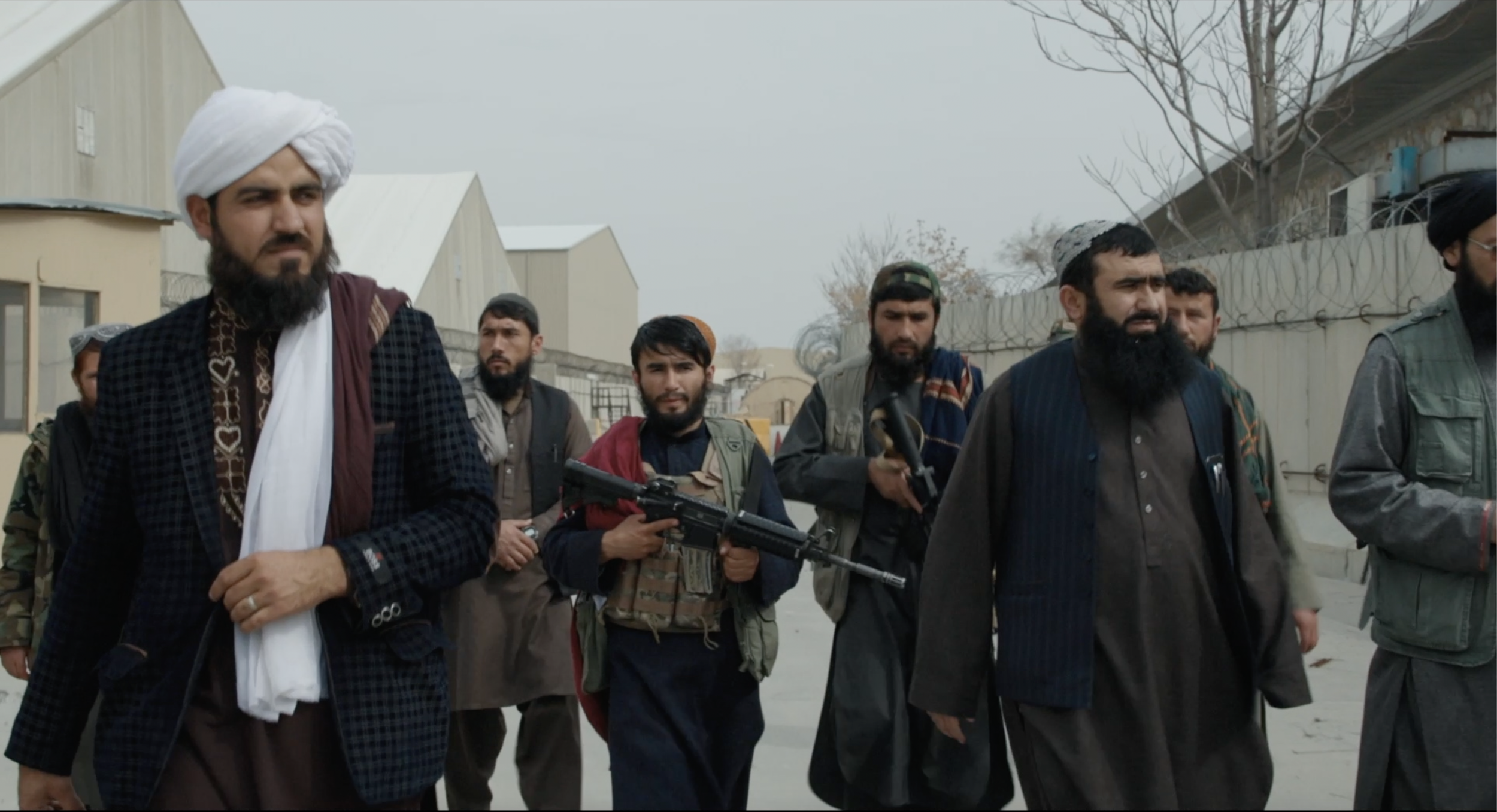Hokage - Shadow of Fire Directed by Shinya Tsukamoto
Hokage - Shadow of Fire
Directed by Shinya Tsukamoto
Starrings: Shuri, Mirai Moriyama, Ouga Tsukao, Hiroki Kono, Tatsushi Ômori
Origin: Japan
Year 2023
Review author: Roberto Matteucci
Click Here for Italian Version
“You would be my bodyguard.”
At the end of the Second World War, the destruction of Japan, following the detonation of the two atomic bombs, had reached its peak. It was not just a humanitarian catastrophe; it was not just the material devastation of the country. There was something more. Leonardo Vittorio Arena explains:
“The end of the Second World War shook their self-confidence, calling into question an ancient scale of values. They had become victims of a sort of alienation: they could no longer find comfort in the old world, nor could they understand how to make their way in the new one.
It is an impasse, and to get out, many choose suicide or isolation; therefore, nothing is better than to appeal to a presumed sense of superiority, an ancient legacy. The dramatic condition of post-war Japan was depicted in films such as Ikiry by Kurosawa Kurosawa’s, or reached its peak in the paroxysmal behaviour of writers such as Mishima.” (1)
The mental clarity, the pride, the ancient motivations for life, the models, the emperor and the religion became unstable, with psychological and physical repercussions.
In addition to Ikiru, cited by Professor Leonardo Vittorio Arena, other films by Akira Kurosawa capture the disordered impulses of survivors after unconditional surrender through a neorealist lens.
Japanese director Shinya Tsukamoto, with his cruel and exaggerated style, offers an original perspective of the era and, above all, fires yet another anti-militarist arrow into international cinema.
At the 80th Venice Film Festival, he presented the film Hokage - Shadow of Fire, unsettling through the simple depiction of a pain still current and yet to be processed, despite so many years having passed.
In Hokage, Shinya Tsukamoto is more sentimental and tender than Nobi - Fires On the Plain, also in Venice in 2014.
In Nobi he used the same language as his first films in the Tetsuo series, in which there were:
“… transposition into images of one of the traumas of the human body: joining, being a single part with a machine, with pieces of a robot.” (2)
The method in Nobi is:
“… real nightmare, something that actually happened, and incredibly, no one can exclude its repetition in the future… The monstrous vision is war. For the Japanese it means the disastrous Second World War... Due to the geographical structure of the Philippines, many Japanese soldiers remained isolated, stuck in the jungle... But the retreat was a massacre. The Japanese were already undernourished, without supplies for a long time.” (2)
His narration is an:
“ … Shinya Tsukamoto in his style, in his language, in his apocalyptic, over the top interpretation. Exaggeratedly, he spares us no nuance. Indeed, the director manages to shock by going into detail, dragging into the putrid wounds together with the flies or worms, achieving the success of provoking inhuman reactions. … It induces nausea, revulsion, repugnance. The hospital is immersed in dirty red blood. Wounded soldiers are treated without medicine, without hygiene, without anesthesia. The doctor intervenes with his bare hands, inserting them into the gashes. Blood splatters all over the screen.” (2)
The soldiers resemble:
“…zombies because they are powerless, they walk in pain and dejection. They lose their bowels, their guts, their intestines; legs and arms are cleanly amputated and abandoned while what remains of the body continues to fight. Not even leeches and worms prevent the desire to save oneself. Despite the predicted death, the suffering, the malnutrition, there is even something more threatening that scares them." (2)
In Hokage, there is a young woman who survived in a half-destroyed tavern. Her husband and son were killed in the war. Surviving is not easy. Lacking essentials, she prostitutes herself for food and some coins.
Besides, a soldier, an adolescence, enters her inn. Dirty, filthy, confused, unhinged, he is only searching little comfort in that room.
The last is a malnourished, ragged boy, orphaned, scraping by theft. He has also stolen a gun and walks with the weapon, although he is not aware of its usefulness.
The soldier and the child feel a sense of optimism by attaching themselves to the woman. A spirit of survival comes over them. Incredibly, the hope is in the black market. It is frequented by a crowd, among whom many miserable people are looking for food and profiteers capable of selling at very high prices, selfishly ignoring the surrounding poverty.
Shinya Tsukamoto got the idea for the film from a real black market:
“The starting point of this interest of his which then led to his career was above all the fact that in the post-war period there was a black market, I was very interested in the fact that a place that is actually not managed by law has at the same time many aspects dark but also functions a lot of life and a lot of energy so that was the starting point from which he then developed the idea of concrete always which above all is very interesting how it deals with the theme of the post-war drama how the soldier also perceives for example the In my opinion, the sound of the shots was very interesting because it also shows you the reactions of these soldiers who later have those........” (3)
The black market embodies the artifice of anarchism. A hallmark of a society defeated in brutal conflict, where rules dissolve for want of authority.
In this absence of laws and morals, there emerges a determination, a vitality, the foundation for a future civilisation and a different world.
This is the difference with Nobi. In the latter, the soldiers are condemned to death. In Hokage, the survivors may have a chance, but they must pass through a black market.
The protagonists are scared, dark, sick, disgusting, and often violent. The soldier beats the woman and throws the child out of the window. On the other hand, the boy breaks a bottle over the soldier's head. They are self-destructive, bad, disillusioned, volatile, and disturbed.
At one point, the filmmaker shifts from the main plot to a secondary story. A man, an ex-soldier, rents the child's gun and together they wander for a long time. They arrive at a house. Inside lives the ex-soldier’s former officer. He confronts him, threatens him with the revolver, and intends to kill him. The motive is revenge. The officer has ordered his platoon to carry out barbaric acts. The former soldier has a tormented conscience and wants to free himself by placing all the blame on the commander. is there personal guilt in war? Could a trial really acknowledge the responsibilities, the massacres, the useless ferocity? Is it honestly possible to identify the distinction between an act of war and a war crime, or do they both have the same meaning? Or does a trial against alleged war criminals on the losing side stem solely from a desire for justice, or is it a justification for the winners to decree and humiliate the defeated?
Shinya Tsukamoto shocks with the particulars, unseen-yet-imagined, of the humbled.
The dark sequences of Nobi are now replaced by the relaxation of a specific photograph. The source is artificial, almost fake, and disturbing. Or like the scene in the market, with a single low shot framing the feet, or the darkness, the hermetic shots of the avenging soldier.
The structure is fast-paced: character introductions, precise delineations of the motives and existence. There are no in-depth analyses of the protagonists; they are understood exclusively through the perception of fragments. This is why a reading in the images is important.
The conflict is intrinsic and the consequences are more exhaustive, even if the plot twist appears in the market with the child. He promised the woman he would stop stealing. He returns to the market stall where he once stole food. Notwithstanding being beaten by the owner, the boy begins to work for him. The owner with feigned indifference hands him a piece of bread.
The catharsis occurs with the woman. She falls ill, her face disfigured, the disease is contagious. She locks herself in a storeroom; no one can help her. Japan is in total torment and cannot afford to be interested in the fate of a single person.
The narrative rhythm is based on the harmony between characters who drift in and out. The tension is concentrated on demonstrating the author's thesis: the boundless evil of war.
The film has a sepulchral atmosphere, steeped in suffering. It is a thin and invisible dust, that clouds the reason destroyed by the madness of war.
There is no ethical element; who cares about good and evil when the mind is overwhelmed by countless corpses?
The film is not sloppy, it has an elegant formality, visual purity and candour images.
Leonardo Vittorio Arena, Lo spirito del Giappone. La filosofia del Sol Levante dalle origini ai giorni nostri, I edizione BUR Saggi, Milano, gennaio 2008. Translated by author of the article
Roberto Matteucci, “Nobi - Fires On The Plain Regista: Shinya Tsukamoto”, 1 novembre 2023, https://popcinema.org/movie/nobi























A metaphorical comparison between Akira Kurosawa’s Ikiru and its remake Living by Oliver Hermanus, presented at the 79th Venice Film Festival.